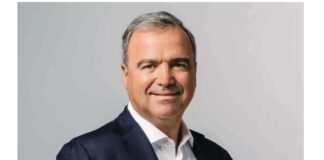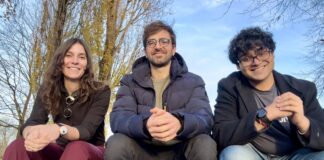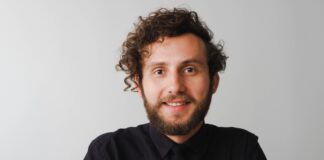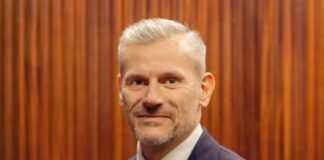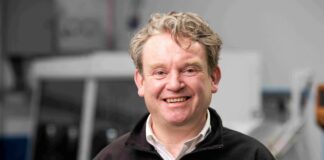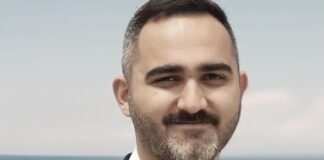Manara placed engineers across the US, the UK, Ireland, Germany and the UAE
Please introduce yourself and your startup Manara to our readers!
My name is Laila Abudahi and I grew up in Gaza, Palestine. I hacked my way from Gaza to becoming a software engineer in Silicon Valley. My engineering background: I graduated with a degree in computer engineering from Al-Azhar University in Gaza. I hold a masters degree from the University of Washington in Seattle and am a Fulbright Fellow.
Prior to Manara, I worked at Nvidia as a senior software engineer building autonomous vehicles. On a more personal side, I’m a plant mom and I do woodwork for fun
How did you get the idea of Manara?
The companies my co-founder and I used to work for (Upwork, NVIDIA) were constantly seeking software engineering talent but couldn’t find them. In the meantime, our talented friends in the Arab world couldn’t get these jobs because their resumes look untraditional and they are unfamiliar with the interview process. We wanted to bridge the gap between the demand and the talent pool in the region.
Inspired by my own journey from Palestine to getting my dream job at Silicon Valley, I wanted to make it easier for people back home to do the same. Ultimately, these engineers will become the CTOs and senior engineers that the region needs in order to accelerate the growing success of its own tech ecosystem.
That’s how Manara was born.
Why did you decide to start with Manara?
The Middle East has the world’s youngest population and has made large investments in education since the Arab spring. The number of college grads is doubling every 5 years. The region has an increasing interest in STEM. In Palestine, for example, the number of high school students applying to “Code for Palestine” increased 22x between 2015 and 2020.
The region will graduate an estimated 500,000 STEM grads by 2025 – equal to the US and more than Eastern Europe. The talent pipeline is the biggest challenge facing the tech industry, and diversity of talent continues to gain priority.
Covid has led to a seismic shift towards remote hiring, which only makes things easier to remotely hire engineers in the Middle East. An estimated 52% of computer science graduates in Palestine are women, 62% in Tunisia, 80% in Qatar. Currently 83% of women computer science graduates in Palestine are unemployed and numbers are similar in other countries.
What is the vision behind Manara?
Our mission is to unlock the human potential of the Middle East and North Africa
We are building a community committed to diversifying the global tech sector while uplifting the economies of the Middle East and North Africa, with a focus on Palestine and women. The engineers we place at companies like Google today, will become the backbone of MENA’s tech sector in the future.
How difficult was the start and which challenges you had to overcome?
The start was difficult because we started with the toughest city in the Middle East for hiring – Gaza( and especially for women) and we aimed for placements at top tech companies like Google. The rationale for this was if we can prove the model for talent from the toughest city with the highest barriers and place them in positions at Google, we can do it from anywhere.
One of the biggest challenges we faced was switching the mindset for talent in Gaza. The candidates were talented and highly qualified but did not believe in themselves, especially women who were not confident enough to even apply. At the very beginning of Manara’s journey, it required hours and hours of mentorship per potential candidate until the stage of applying – because simply no solution existed like that and getting a job at Google seemed completely out of reach.
Today, one of our biggest pillars and support units in Manara is our mentorship program that focuses on overcoming this imposter syndrome. The second biggest challenge was rebranding the Middle East as a source for tech talents versus what the region is typically associated with like wars, displacement and crisis.
Who is your target audience?
We target top talent software engineers and computer scientists – with a focus on women and Palestine. Manara runs the career acceleration program twice a year.Requirements for entry include under-graduate or post-graduate computer science or engineering degree candidates with strong English language skills.
The other target audience we are looking to reach are partners we can work with, such as Google, Meta and Amazon. Europe’s tech sector is growing quickly. There’s a massive need for new solutions to access talent, whether remote or onsite. The Middle East and North Africa is an obvious fit because of proximity and time zones.
What is the USP of your startup?
Manara is a Public Benefit Corporation. We believe in leveraging the best of the tech sector to achieve social impact sustainably and at scale. Top investors and companies from Silicon Valley are helping us turn our vision into a reality. Manara has paid partnerships with FAANG companies and placement rates higher than they see with any other diversity solutions
We placed engineers at Google, Meta, Amazon, Flexport, Repl.it, and more. 80% of our graduates get great jobs. On average, their salaries increase 3x after Manara. We secured 80 roles for computer scientists & engineers with the biggest employers to date being Google & Meta
Can you describe your typical workday?
Mornings
Starts with a walk to get coffee – I use this trick to switch to work mode on days I’m working from home, otherwise I’m working from a coffee shop
I manage a team of remote engineers in time zones all around the world – my priority is to ensure the tech product is running and that I’m unblocking any team member on tasks before our daily team stand-up
As an engineer, Jira is great for task management
Afternoons
All my meetings in the afternoon are walking meetings, it helps me stay focused. Meeting at a coworking space with my co-founder. This is mainly to build strategy and set our goals. To keep up with Silicon Valley, I enjoy listening to podcasts & check Twitter
Where do you see yourself and your startup Manara in five years?
We raised $3 million in pre-seed funding from Silicon Valley and European investors. The funding round was led by Stripe and included Reid Hoffman (founder of LinkedIn), Paul Graham (founder of Y Combinator) and Eric Ries (founder of Lean Startup).
Our goal is to use this investment to scale its existing cohort-based solution to go from 60 engineers per year to 6,000 engineers per year. In addition, we plan to launch a self-service product for interview practice, networking and mentorship that can reach millions of software engineers.
What 3 tips would you give to founders?
My one and only tip for founders is to just start and don’t worry about ‘perfect.’ Build your product, put it out there for your users and keep on improving it everyday.
Thank you Laila Abudahi for the Interview
Statements of the author and the interviewee do not necessarily represent the editors and the publisher opinion again.





